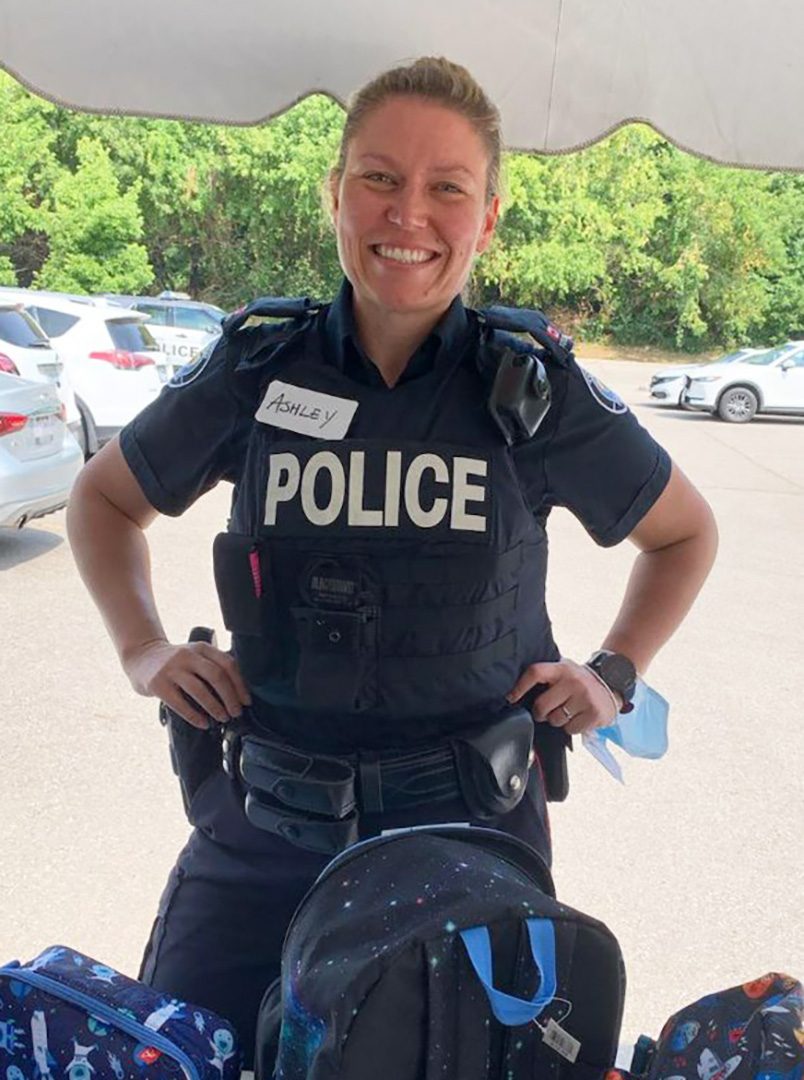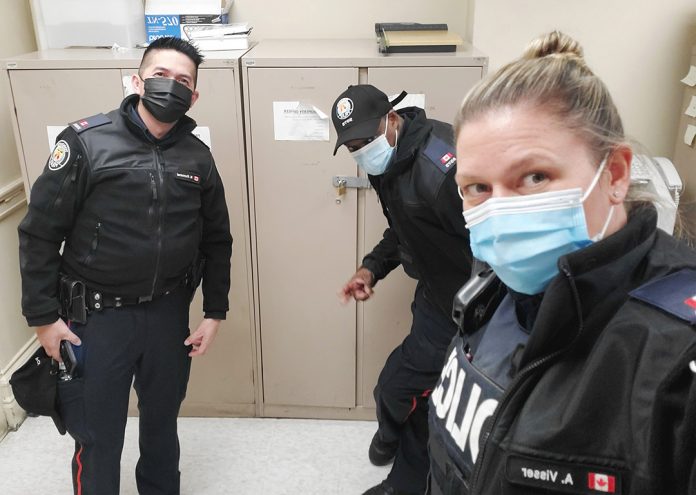Ashley Visser is a Durham College (DC) Police Foundations program graduate. She is now a recruiter for the Toronto Police Service.
Visser graduated from DC in 2005 and then continued to study Criminology and Justice Studies at Ontario Tech. In 2009, as soon as she graduated university, Visser applied to the Toronto Police Service (TPS).
She graduated in May and joined the TPS in August, so she says the process moved very quickly for her. She went through interviews and background checks prior to being hired.
She gives a lot of the credit to why she was ready to start working so quickly to DC’s varsity community. Visser was extremely involved with everything sports-related; she was part of both soccer and basketball teams.
This led her to doing a lot of volunteer work – especially with her basketball team, she recalls. All of which made a difference when applying to TPS.

“When I applied to the police service, I already had leadership skills. I had teamwork skills. I had time management, problem-solving, I could have conversations with people face-to-face, I was able to communicate verbally or written, I was aware of my body language,” she says. “Establishing that at such a young age was great. So, when I applied to the police force, I had those skills that they were really looking for.”
Visser spent years in the field working as an active police officer, forensics officer and coach for new recruits. But the thing she loved the most was welcoming new people into the service.
In 2020, during the ongoing COVID-19 pandemic, Visser heard about an opening for a recruiter position at TPS. She applied for it and got the job.
“I really enjoy my job. I love being a police officer. I love coaching and I love teaching the new recruits coming out. So I thought ‘hey, why not get into the front end of it and really promote the service, try to find people who want to be police officers’,” she says.
Visser says she does a lot of communications work as part of her job. She participates in interviews, events, responds to emails – more than 70 on busy days.
She also took this job as an opportunity to mentor future candidates. Any applicants who are able to pass the first stages of the hiring process and have to face an interview can work with Visser so they know what to expect.
About 200-300 applicants are hired every year, she says. All the candidates go through background checks, interviews, and physical evaluations to get hired.
The major requirements to join the TPS are a post-secondary degree or diploma; Ontario Association of Chiefs of Police (OACP) Certificate, which is a basic aptitude test to pre-screen the candidates; a full G driver’s licence, over the age of 18, and a Canadian citizen/permanent resident.
Visser also says having language skills, a commitment to your community, and consistent employment count as positive points.
Visser says applicants who have had encounters with police are still eligible to be hired by TPS.
“Do not count yourself out before you even apply. Small indiscretions in your life don’t lead you to be a bad person, you know, a bad character,” she says.
“Those mistakes develop you into having that life experience that we want in the Toronto Police Service, so you can understand, and you can show empathy to people who may have had bad choices in their life, and you can show them that it’s not the end-all be-all.”




